The Vision
PlainSpoken began at the end of 2022 as an effort on my part, with the help of my friend and church employee, TJ Owens, to participate in the larger discourse on Methodism in the midst of the dysfunction and fallout within The United Methodist Church. Having read Good News Magazine and articles published by the Institute on Religion and Democracy for years, I came to understand that the worldview and particulars of what they published was not known by many. Even the topics circulated by UMNews in their regular weekly digest were largely unknown by most on the UM Facebook groups I was a part of. The result was that individuals, especially clergy, were tribal and petty. I wanted to do something about that, facilitating mutual understanding from a conservative/traditionalist worldview.
In the midst of what has now been called the largest denominational schism since the Civil War, it was hard for churches to know what information they could trust and how much truth there was to allegations from any given source. Our own churches here in Northeastern Oklahoma were not entirely sure about what was happening and what it had to do with them. PlainSpoken was formed partly to simply facilitate another space in which information could be shared and made sense of.
The Product, thus far
I struggled to find the right format for my content. I very much enjoy the format of Breaking Points and The Hill for news commentary on YouTube. I emulated them for a time, with little engagement. I also began a series of international interviews with African United Methodists, which I am still proud of, though it got little engagement. Then on January 16 & 17 of this year, I published two pieces on North Georgia Annual Conference and Arkansas Annual Conference, detailing institutional misbehavior around blocking disaffiliations. From that moment on, the channel began a steady climb.
As of writing this article, I have created about 200 pieces of content. Much of this has been analysis on differing topics pertaining to developments and trends in The United Methodist Church: churches closed against their will, properties and assets seized, dishonest and manipulative statements made by bishops and denominational officials, bad faith studies published and circulated by consultation agencies, stats on disaffiliations, and other similar topics.
I have facilitated many filmed conversations with representatives of various sorts: professors, pastors, caucus leaders, lawyers, activists, even our own Bishop Scott Jones. It has been very spread out. I have learned a lot! I have grown in a number of areas, but the most challenging has probably been in the legal arena. I have spoken with so many lawyers, on camera and off. I even participated in the proceedings of FUMC Oklahoma City against the Oklahoma Annual Conference of the UMC, later covering their Oklahoma Supreme Court proceedings on a live stream.
Church law also presented some real challenges, as the trial of Bishop Minerva Carcaño transpired over the course of a few days. I gave analysis at the end of each one. Folks close to the situation followed up with me privately to tell me just how accurate my analysis was.
TJ and I are more than halfway through a series on the Transitional Book of Doctrines & Discipline of the Global Methodist Church, which has helped hundreds of people work their way through our new covenant document.
On Fridays at 4:00 PM CDT, I have learned to do a somewhat functional live stream (internet connectivity has been an issue). There is an average attendance of around 40 people during these times, during which people write to me and one another. I present on smaller topics and engage whoever writes.
The most demanding work has been irregular reporting I have done on developments in individual United Methodist annual conferences, in which many of the large trends and realities seen throughout the country are seen dynamically in smaller form. I have had correspondences with hundreds of people across our nation and the world in order to be able to speak accurately and adequately about realities on the ground in other places.
Finally, I have also done a good deal of material dealing with the Global Methodist Church, its signs of promise, but also things to be concerned about as a new body is formed. Mine has been one of a few voices facilitating an ongoing conversation with many thought leaders about what the essence of Methodism is, which is only just beginning, really.
Where is PlainSpoken found?
My primary platform is YouTube, where I get the most views and engagement. I recently reached my 3,000th subscriber there. I also publish on Facebook, where I recently cleared 1,000 followers, Rumble, where I have like 5 people following me, and a number of other podcasting platforms, namely Apple Podcasts, but also Spotify, Amazon, and Google. A Locals account has been established for people to monetarily support PlainSpoken, which receives special treatment from time to time. Most recently, I started a Substack publication for written articles, which also serves to circulate the audio and video versions of my segments.
What the numbers say after one year
My two RSS feeds for audio (Red Circle and Substack) tell me my podcasts have gotten almost 21K downloads this year.
YouTube, the platform on which I have seen the most success, reports that in the last year PlainSpoken has been watched by thousands of people, coming close to 96K hours of watch time. It would be very dishonest of me to attribute all of this growth and engagement to my own efforts. Chris Ritter of People Need Jesus has been good to promote my material alongside the hundreds of other resources he lists on a monthly basis. He is the single most helpful resource for all developments in the realm I concern myself with.
Facebook tells me that in the last year, PlainSpoken has had a reach of almost 124K people on their platform. This platform has been more challenging for us to work with, for some reason. The local churches I serve have had an easier time getting people to like and follow. It is strange. But thanks to promotion by Ed Rodarmel of Omnia Methodist and many other normal folks, it has seen good circulation and engagement, most of which I cannot see, but Facebook reports:
Losses Along the Way
One might notice the relatively high number of people who have chosen to unfollow me. That proportion has been even higher on YouTube, where I have sometimes lost up to ten subscribers on a day. While there has been a good deal of support for this project, there have also been many people who have decided that they are not fans of how I am going about things. The vast majority of them have left quietly. A few have spoken politely beforehand, others not so politely.
A number of progressives and institutionalists followed me in the beginning because I seemed reasonable to them. Over time, a few have highlighted what they have perceived to be a partisan bigotry on my part. Some are simply unwilling to hear a critical word and choose to leave. Many more have stayed with me, considering my words even if they do not agree with them.
A number of conservatives have also gotten angry with me at times, either for not covering stories they think I should cover, for belaboring articles and arguments more than they think I should, or failing to defend or advance an item of doctrine or practice they are passionate about. I have learned that satisfying such folk isn’t really possible. I have actually had to block as many intolerant conservatives from my content as I have intolerant liberals.
There are also just persnickity people in the world who nitpick how I do things. One of the most popular criticisms has been that I talk too much in my interviews. I have taken such criticisms to heart and stopped calling them interviews. I now call them ‘conversations’ because that is what they are. I feel good about that.
How does PlainSpoken compare and contrast to other Methodist communication efforts?
Traditionally, American Methodists have had journalistic publications like UM Reporter and UM News to keep them informed of developments. As I said above, I noticed a widespread ignorance of regular articles published by UM News.
Conservative caucus groups like Good News started publications in print that meet a high editorial standard. I cannot speak to how many read the articles contained in that or other print media.
Good News and IRD/UMAction are good about producing articles online, as well. These go alongside other blogs and websites like Mainstream UM and Hacking Christianity on the left that have their own readerships. I have no idea how widely read their stuff is. Sometimes one of them strikes a nerve and it is reposted across social media. Even then, it is hard to say how many actually read the article as opposed to the headline.
I notice widespread ignorance when Methodists get together to talk, which indicates to me that they aren’t reading much. I’m just not sure print format is the way to reach a large number of Methodists at this point in time.
Podcast metrics are similarly opaque. One cannot look up a podcast’s number of downloads if one does not own it. I reached out to a couple well-known Methodist pastors with podcasts to compare stats. PlainSpoken’s total number of downloads was higher by around 20%.
The only publicly available stats on engagement are on Facebook and YouTube.
Facebook is not really used for thoughtful reading, nor for watching long form content. Even so, one can easily see the views any piece of content has gotten. YouTube is easier to navigate and compare.
What both YouTube and Facebook show is that, while PlainSpoken has fewer subscribers (YT) and followers (FB) than a few other Methodist content makers, it has more views and engagement than any other Methodist source. There are some other great people doing good work, including Andy Miller III of More to the Story and Matt O’Reilly of Theology Project, among a few others. Yet it is only PlainSpoken that routinely gets over 1K views on content. PlainSpoken interviews/conversations are watched and engaged much more widely than any other Methodist body. Even Methodist megachurches with multimillion dollar setups and professional staffs are not generating content with this much engagement online. PlainSpoken outperforms the largest United Methodist and Global Methodist local churches and pastors for reach on these platforms.
Why I feel good about the work thus far
The growth and engagement seen here has been entirely organic. I haven’t paid anything for circulation, for people to talk to me, or anything else. I have gotten no institutional support from the GMC, the WCA, or any other caucus or special interest group. The intricacies of quality audio and video production, bandwidth management, information storage and management, filing and record keeping, social media engagement and curation, and fundraising has all been been new to me. TJ and I together have painstakingly learned thousands of lessons, small and large, along the way, which has led to a pretty smooth operation of content generation and circulation.
While I have made many mistakes along the way, people have generally been quite gracious and understanding. The standard of what PlainSpoken produces is generally above the quality of what is offered by many other sources. With prolonged engagement, it can only get better.
The monetary stuff
Why does PlainSpoken need to make money?
This is, in many senses, a ministry of the Nowata Methodist Church, which is my full time employer. The hundreds of hours of work that have gone into this project would have otherwise gone to local ministry and engagement. Church leadership benevolently shared their pastor with the rest of the Methodist connexion in hopes that I might help facilitate mutual blessings. I believe those hopes have been answered.
Even so, in order to justify any given ministry, fruits must be observable. One cannot point to a number of how many local churches had needed disaffiliation conversations because of my efforts. One cannot discern how many individual believers have grown in their faith and knowledge through my contributions. One of the only ways that one can discern any meaningful difference PlainSpoken has made is by how much people or companies are willing to give in order to support it.
Moreover, when a church volunteers physical space for a local project, there is a right expectation that the beneficiary of such benevolence will do what is able to repay the kindness shown. I have probably given half of my professional time in the last year to the PlainSpoken project. Likely more. When considering my salary package, half of that would be around $25K annually. When looking to simply offset the cost of TJ’s employment by the church, that would be $12K annually.
When I first began the project, I was not monetized on YouTube, I had no Locals account, and there was no other revenue for such a project. The church had some basic gear that I was able to use, and I had TJ for a few hours each week. I was turned off to the idea of making any money from ads.
A few months into the work, my friend Absalom needed emergency funds for his church in Abuja, Nigeria. I was glad to put together a segment reporting on his church’s situation. Because of that, PlainSpoken was able to raise almost $2,200 toward helping them construct a new permanent structure.
After things started taking off, I monetized on YouTube for a time just to see what kind of revenue it could generate. On a good month, we topped off at a little more than $200. A couple folks complained about all the ads. I decided to open the Locals account in order to let the more financially able among my audience to step up and show their interest. Unfortunately, not many did. I now have a solid crew of a little over 20 supporters on there. Combined, in the few months that Locals has been in place, they have contributed $720.
Locals contributions have definitely made a difference. However, they are not enough to supply what is needed in the short term. I finally remonetized on YouTube a few weeks ago. I haven’t heard any complaints, but I am a little sad about it. My hope is to continue building up Locals so that YouTube is not needed.
None of the money made has gone into my pocket. The Christian convictions of the Rickmans is that we should not live in opulence as a family. We do not want fancy things or to go expensive places. We like to stay at home, raise our kids and chickens, and minister to the people around us. We homeschool, cook good food, play and sing good music, and enjoy being together. We drive older vehicles, don’t have large medical expenses, and are able to save a good deal. Any changes in income will be from a raise given us by the churches we serve.
That is not to say that income from PlainSpoken has gone into the general funds of the churches we serve. It hasn’t. A line item has been made in our designated fund that tracks money pertaining to this fund. The total amount taken in from various sources in 2023 has been $2,640. Of that, all of it has gone to offset the cost of lights, cameras, routers, a modem, cables, adapters, and expenses for Zoom and Restream. Despite what has been brought in, the church is operating at a loss. My hope is that this will change next year.
The total amount made from YouTube for 2023 was $1,355.70, despite what was reported on the official table above.
Plans for 2024
This next year is set to be quite pivotal. Cultural tensions are going to be quite high due to another presidential election in America amidst a great culture war. There is sure to already be heightened emotion and intensity among Americans. There are also great tensions abroad in many areas that contain United Methodists who have not been allowed to disaffiliate. For example, Nigeria contains the most United Methodists of any African conference. They border two nations that are embroiled in military actions that are connected to American and Chinese intervention. They are aware of American interference in their government policies around human sexuality, and they see themselves, in a political sense, as already put upon by American progressives, using financial and military power to coerce them.
The United Methodist Church is scheduled to finally have its long-awaited General Conference in April, at which progressives, now in the American majority, are aiming to not only change the sexual ethics of the denomination, but also to exclude nonAmerican voices from interfering in continued theological changes they want to make. They are calling the plan “regionalization,” creating a sort of ‘separate but equal’ ethos in the denomination. It remains to be seen if the assembled body will have the stomach for such open bigotry and abuse of power, especially as it looks like around 1/3 of African delegates won’t be able to attend because invitations were not sent out early enough for them to go through the visa application process to travel to the gathering. The Philippines is also reeling from some shakeups caused by new progressive bishops who have used their power to facilitate the hostile takeover of a college that had been previously administered by a faithful conservative Methodist. As the GMC is getting up and running there, many are much more aware of the role the denomination has played at manipulating and disenfranchising them. Even churches in Europe, thought by Americans to be uniformly progressive, are agitating to leave the denomination, tired of the aggressive social programming done over a prolonged period of time. There is sure to be a lot of analysis and information spreading to be done around General Conference this year.
Later in the year, the Convening Conference of the Global Methodist Church will assemble in Costa Rica to formally adopt a Book of Doctrines & Discipline. It is sure to be an exciting time, as millions have awaited this new body. Keith Boyette is set to retire, which means new leadership will be set up. Annual conferences will be established around the world as United Methodist conferences are either allowed to disaffiliate or choose to leave if constrained and other denominational bodies also choose to join up. There are going to be many workshops and conferences aimed at building up the Global Methodist Church and Methodist identity more broadly, including the Reconstructing Methodism Conference and the Mere Methodism Conference: both in April.
In January, I aim to facilitate a series with four United Methodist leaders, who will walk through the legislation that is to be presented at the UM General Conference. The intention will be to inform United Methodists about the issues involved, the history and implications behind the words they will be voting on, and the delegates that will be assembling to make such important decisions. Rather than allowing delegates to show up without much knowledge, the hope will be to equip all the delegates to vote righteously, rather than politically.
Throughout the year, it is my intention to do semi regular segments on different annual conferences of the Global Methodist Church, chronicling the people and movements that are informing this new shared culture. There will be a lot of compiling and spreading of information, as well as filmed conversations.
On Substack, I aim to publish a series of written segments, accompanied by video, on the twelve essential characteristics of Methodism as I see them. My hope is that from my little corner of Oklahoma, I might do my part to help reclaim not just for the form, but the power of righteousness for the people called Methodist.
During annual conferences and special events, it is my hope to facilitate live stream commentary. It is possible that I could travel to Costa Rica, but the birth of my fifth child is expected in July, and the demands on my household will be heavy for several months. At this point, I am thinking it is more likely that I will continue to fortify my live streaming capabilities, and consult people on site from afar. It should be fun and informative!
I will not be quitting my day job. I love the folks I serve here in Nowata and Delaware. I fully intend to continue catechizing and equipping the children in faith, facilitating Wesleyan class meetings, and leading weekly public worship. I also have a weekly pastoral Substack account with 220 subscribers that I hope to continue contributing to. I love being a pastor in a small town and never want to stop.
Hopes for the Long Term
Despite my passion for small town ministry, I also obviously have a passion for the Methodist heritage. I think authentic Methodism is the closest thing the world has seen to Pentecost since…well, Pentecost. The power and movement of the Holy Spirit was undeniable. Seeking such a faithful movement of the people is perhaps the worthiest work that can be done this side of heaven. I think PlainSpoken can be that. It involves tearing down and destroying, building and planting (Jeremiah 1:10). It involves speaking the truth, plainly, in love (Ephesians 4:15).
God in his blessedness has provided a time in which a random small town pastor can build a growing platform on the internet, cobbling together influential voices from around the world to inform a grassroots audience on theology, history, ideology, and ethics.
Long term, if God blesses Methodism with new life and vitality, PlainSpoken could be a sustained effort at informing, equipping, connecting, and empowering Methodists across the world. It seems to me that all forms of media are needed in order to equip laity and clergy to faithfully engage the world around them. Sunday school curricula is not sufficient, nor are the various print media available going to effectively engage large swathes of people in our churches. I believe this format, the format I have adopted, is the most promising way to again form a cohesive body of believers that shares the doctrine, discipline, and spirit with which we first set out.
If I am right, then there is a future when PlainSpoken can be funded well enough to pay for additional employees to collect and compile information, generate quality content, and circulate it more broadly on more platforms. It is clear PlainSpoken has capacity for great growth. As it does, it is reasonable to think that the online space, thus far dominated by Reformed, Roman Catholic, and Prosperity Gospel Christianity, can be a place where Methodism takes a larger seat at the table, again facilitating conversations on a large level that the world actually cares to listen to.
I am imagining a future in which PlainSpoken is of benefit to Methodism broadly, and in which the churches I serve are also equipped to minister more powerfully and ably than before they began this venture to serve their connexion.
So I would ask for your prayers, that TJ and I continue to discern God’s will and the needs of our Methodist brethren. I would also ask that you consider supporting PlainSpoken in other ways that you are able, but promoting our material, and by funding it. I have done a poor job promoting online giving directly to the church to fund the ministry. If you would like to do so, HERE is the link.
Final Thoughts
Even if tomorrow everything falls apart and PlainSpoken turns out to be a dud (I don’t think it will), I just want to say that this whole project has been so rewarding. The thousands of comments and emails have sharpened and informed me, also softening my heart and helping me to be more empathetic. Earnest conversation partners have written me from other religious traditions. I have gotten to connect deeply with many African Methodists. Even people who disagree with me vehemently have written respectfully to affirm what they can and push me where they think I am lacking.
Most meaningful to me has been the salt of the earth people writing from all over America, concerned for their local churches. Hundreds of people have written to tell stories of pastors refusing to let them have disaffiliation conversations, superintendents mocking and insulting them, bishops and conference staff manipulating or entrapping them. Folks in new Global Methodist local churches have written in frustration that they can’t find a pastor yet, that they don’t seem to have a firm Methodist doctrinal foundation. Many folks want advice. Many just want someone who understands the big picture to read their story, care about them, pray for them. Others are just so happy and want to share their joy at finally being able to be in a Methodist covenant community that isn’t demanding so much compromise and dysfunction.
Folks who have been impacted by me have mailed me books, mailed the church checks, and sent me gifts (most recently a John Wesley bobble head). The interpersonal and intimate nature of these things has not been lost on me. It has been a very blessed affair, connecting me with folks around the world. One of the most consistent participants in my weekly live stream is a Methodist from England. I regularly get text messages from leaders who once has pseudo celebrity status in my mind.
In short, I am the most blessed person I know. God has been very good to me. I have been overjoyed to serve in this role. I want to thank the hundreds and thousands of salt of the earth Methodists who have been sharpening me as iron to be an instrument for the Lord. I pray I may be of more use to him in this coming year!







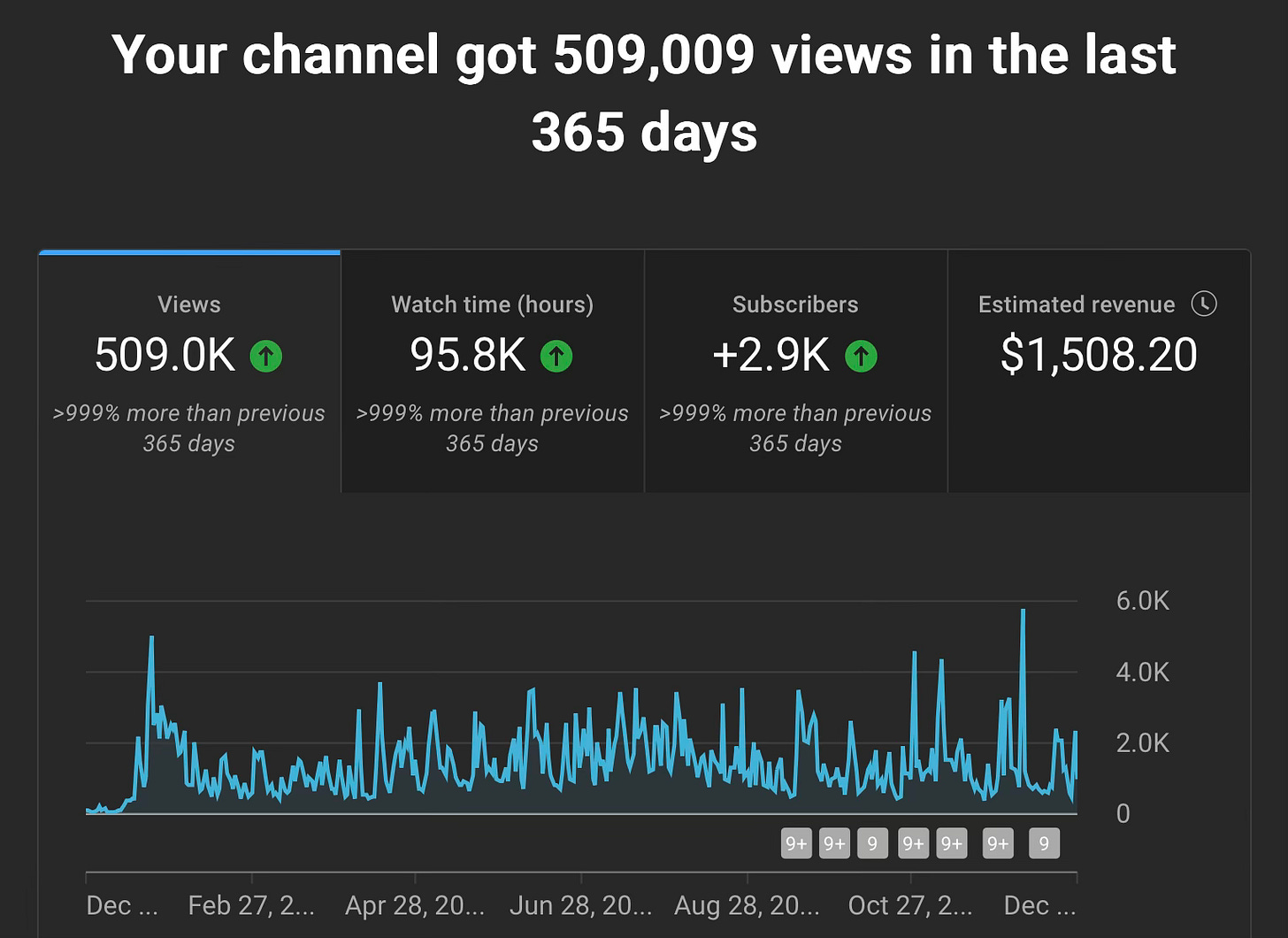



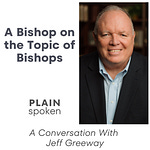

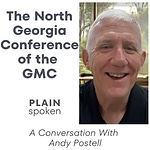
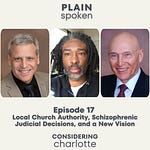
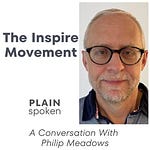

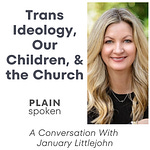
Share this post